In 2022, The Network for Developing Conscious Communities is rewriting Black cooperative history in the United States with the rebirth of The National Conference on Black Cooperative Agenda. The conference theme is “ Building Cooperative Capacity Through Conscious Practices”
This conference is a testimony to the work of The Poor People's Development Foundation (PPDF), a group founded by civil rights workers in 1968 with the purpose of bringing together and educating Black and poor people on the importance of building a strong cooperative ecosystem throughout the United States.
At this year's conference attendees can expect a variety of workshops designed to provide instructions on how to apply for USDA grants, understanding the importance of developing a political agenda and framing a cultural cooperative movement.
This conference is a Moral and Conscious Call To Mobilize A Black Cooperative Movement, a movement born with new young leadership and a vision for strengthening Black people, families and communities. We want to encourage everyone to share this conference with the younger generation of economic injustice fighters, so that they can forge a new pyramid for Black cooperatives.
There are 15+ workshop sessions and talks, one catered receptions (free!), and plenty of time to meet new people and visit with old friends. We are also happy to announce the Dr. Karama Neal, USDA Administrator Rural Business Cooperative Services, will be the 2022 Keynote Speaker.
We thank you for joining us and look forward to meaningful and fruitful deliberations.
Consciously yours,
Ron Hantz, Founder and Executive Director
Are you interested in enlarging your technical skills and knowledge on how to build a sustainable and strong cooperative? Are you ready to learn how to strengthen your ability to obtain USDA grants, and learn new capacity techniques that make your cooperative stronger? Do you value the Black cooperative ecosystem and want to help it grow? Do you want to expand your cooperative network?
We call upon Black and Brown cooperatives of all sizes and types – farmers, growers, producers, distributors, financiers, policymakers, and retailers, to come and learn how to consciously impact the cooperative network.
We are gathering conference participants together in order to:
The overarching goal of The National Conference on Black Cooperative Agenda is to help Black cooperative leaders become stronger leaders and allies to the Black community by practicing inclusion in their organizations. The Conference empowers them to create a more accepting, equitable environment, and preparing them to work effectively in a diverse cultural workplace. Participants will explore the history and roots of the Black cooperative movement, examine where they are currently, and look to their future. To this end, experiential workshops and discussions will focus on the following four crucial areas for learning:
Awareness of and ability to explore aspects of the Black cooperative community, history, and culture. Self-awareness about one’s own acceptance level with/of the Black cooperative community. Awareness of the diverse and intersectionality of identities within the Black cooperative community, including ethnicity, geographic origin, spiritual traditions, and socioeconomic class. Awareness of inequity of privilege within and beyond the Black cooperative community
Appreciation of the ways in which Black cooperatives are different from each other and similar to each other. Empathy and concern about the impact of economic and social injustice. Taking the important steps to promote becoming agents of social change
Understanding that true leadership values and empowers all the members of the Black cooperative movement. Understanding the levels of racial prejudice and how these levels pave the way for even more damaging levels. Learning more about the history of Black-Cooperatives in the United States. Increasing knowledge base about each of the dimensions of diversity. Understanding of the essential vocabulary related to the Black community.
Communicate effectively, both verbally and non-verbally
Develop the skills of inclusive leadership, valuing and involving all members of Black cooperative community. Invite others to open up and share their stories through an attitude of respectful interest and curiosity, using open-ended questions.
Respond to statements or acts of conscious bias in a way that invites dialogue rather than debate or arguments. Stand up and speak out for your own rights and for the rights of others.
Take a leadership role in service projects and other programs that serve the Black cooperative community. Increase interactions among likeminded people.
Work effectively and create inclusion. Actively try to impact those who are within their spheres of influence regarding issues of spirituality, economic, culture and social justice. Make a positive difference in their communities and organizations
8:00-9:00AM
Breakfast
9:00-10:30 AM
Conference Opening, Ron Hantz, Founder and Executive Director Network for Developing Conscious Communites
10:30-12:00 AM
"Workshop Session 1 Activating Political Power for Liberation
In the US, wealth and political power go together like hand and glove. Our representative government sets the rules of our economy, and these rules determine how the wealth that our economy creates is distributed among its people. In the Oppression Economy, wealthy elites use purchased political power to manipulate those rules and hoard wealth.
Our pathway to a Liberation Economy rests in our ability to fully participate in our democracy and hold the elected officials who represent us accountable to pass laws that enhance income, wealth, and ultimately, power. Too often non-profit leaders of color sit out of the very democratic processes established to distribute critical government resources to institutions and individuals. Are these democratic processes perfect? No. But we cannot leave the playing field open to the people and institutions actively working against us to block liberation.
This two-part session will offer information on the why and how leaders of color can activate their political power. The first session will explore why political advocacy is a necessary component of a leader’s work, and will offer and practice using tools to maximize their political strength. The second part of the training will provide information and resources on the rules of the road related to lobbying and electoral advocacy.
Jeremie Greer, Co-Founder/Co-Executive Director Liberation in a Generation
"Workshop Session 2 Session #BlackCoopsMatter
Cooperatives are a driving force within the solidarity economy - an economy built upon principles of justice, equity, democracy, solidarity, and sustainability. Still, cooperatives owned and controlled by Black workers, consumers, and other marginalized groups, are undercapitalized, insufficiently resourced, disadvantaged, and rarely supported without a White ally or leader. Furthermore, resources geared towards Black-led cooperatives are often funneled through White led organizations. This paternalistic support of Black cooperatives amounts to exploitation, extraction, and waste, and more importantly, promotes White supremacy and systematic racism within the solidarity economy. What can be done to ensure that #BlackCoopsMatter? Elizabeth L. Carter, Esq. Managing Attorney ELC Esq LLC"
"Workshop Session 3 Around the world farmers and business partners form to work as a cooperative (Perotin 2015). With the change in state cannabis legislation, many corporations have entered the market. Many have spread to multiple states (Curaleaf 2019) (Green Thumb Industries 2021) edging our local ownership due to various factors including regulations and cost for independents. There are only a few cannabis cooperatives in the world. However, with recent concerns of the lack of non-corporate cannabis participation many are taking a look at cooperatives (adult use and/or medical) members and/or investor types as a way to include more legal operators. Cherron Perry-Thomas and MBA candidate in Pharmaceutical and Healthcare with a minor in cannabis at the University of the Sciences."
12:00 – 1:30 PM
Dr. Anne Gessler: “Cooperating in the Crescent City: Lessons Learned from New Orleans’s Intergenerational Black Cooperative Movement”
Based on her book, Cooperatives in New Orleans: Collective Action and Urban Development, Dr. Gessler traces how New Orleans community cooperatives contribute to a social history of grassroots social justice mobilization in the South. She examines how the long civil rights movement shaped current New Orleans cooperatives. Exploring the work of Black hospital administrator Albert Dent, who worked with multiracial New Deal southern liberals to establish a cooperative public health plan for Black Louisianans, as well as how the collective experimented with Black liberationist rhetoric, non-hierarchical collective structures, and African diasporic spiritual and aesthetic practices to incubate a network of southern Black-owned cooperatives. Finally, she will discuss how post-Hurricane Katrina racial justice cooperatives have continued to thread isolated ethnic enclaves into a robust, regional economic network informing city and state economic development, labor policies, and land-use plans. "
1:30 -3:00 PM
Workshop Session 4 Activating Political Power for Liberation In the US, wealth and political power go together like hand and glove. Our representative government sets the rules of our economy, and these rules determine how the wealth that our economy creates is distributed among its people. In the Oppression Economy, wealthy elites use purchased political power to manipulate those rules and hoard wealth. Our pathway to a Liberation Economy rests in our ability to fully participate in our democracy and hold the elected officials who represent us accountable to pass laws that enhance income, wealth, and ultimately, power. Too often non-profit leaders of color sit out of the very democratic processes established to distribute critical government resources to institutions and individuals. Are these democratic processes perfect? No. But we cannot leave the playing field open to the people and institutions actively working against us to block liberation. This two-part session will offer information on the why and how leaders of color can activate their political power. The first session will explore why political advocacy is a necessary component of a leader’s work, and will offer and practice using tools to maximize their political strength. The second part of the training will provide information and resources on the rules of the road related to lobbying and electoral advocacy. Jeremie Greer Co-Founder/Co-Executive Director Liberation in a Generation
"Workshop Session 5 Around the world farmers and business partners form to work as a cooperative (Perotin 2015). With the change in state cannabis legislation, many corporations have entered the market. Many have spread to multiple states (Curaleaf 2019) (Green Thumb Industries 2021) edging our local ownership due to various factors including regulations and cost for independents. There are only a few cannabis cooperatives in the world. However, with recent concerns of the lack of non-corporate cannabis participation many are taking a look at cooperatives (adult use and/or medical) members and/or investor types as a way to include more legal operators. Cherron Perry-Thomas and MBA candidate in Pharmaceutical and Healthcare with a minor in cannabis at the University of the Sciences. "
Workshop Session 6 Ella Baker proclaimed, “To me, young people come first. They have the courage where we fail. And if I can but shed some light, as they carry us through the gale.” This session will feature the voices and the liberatory work of young people. The goal is to understand better the current unmet cultural, economic, and social needs of young people and identify what barriers young people face when exercising their leadership. We will explore how young people use cooperation and how cooperation can best support their aspirations. Finally, we will bring experienced coop owners into the conversation to ask our youth panel questions and lean into an intergenerational dialogue with curiosity and explore the leadership of youth in our emerging national network of black cooperatives. Assata Richards
8:00-9:00AM
Breakfast
9:00-10:30 AM
"Symposia: Sankofa Circle. This session brings together all conference participants in the Sankofa Circle to reflect on what has brought each of us into this cooperative economics work. And now that our paths have intersected, there’s quite a bit of pressure to push our movement to the next step. We’ll spend this time building intentionally around our personal and collective experiences in a culturally-responsive format to address some of the following concerns:
How do we move forward with a connected and integrated national agenda for Black cooperation? What are the ways we can be certain to center Black people and our needs in this work, and to not replicate oppressive dynamics as we build co-op enterprises? How can the focus on our community’s economic self-sufficiency shift to a collective understanding of all-sufficiency that’s rooted in the ethos of Africana history?"
10:30-12:00 AM
"Workshop Session 7 Part 1. Community Economic Development (CED) Project Planning and Grant Writing Strategies
Join this interactive session to learn from a grant writer’s perspective, planning and application strategies organizations have utilized to obtain funding for over 50 CED grants nationwide. In this session attendees will gain strategies on planning an eligible CED project, identifying partner organizations and preparing strong responses to each section of the most recent CED funding opportunity announcement. The Office of Community Services’ Community Economic Development (CED) program funds projects that support businesses and create full-time jobs for individuals with low income. This flexible funding can be used for commercial developments and equity investments or loans to businesses and have supported a wide range of projects from business incubators to manufacturing business expansion. Storm Taliaferrow Associate Director of Programs National Association for Latino Community Asset Builders (NALCAB)"
Workshop Session 8 USDA Rural Development is committed to maximizing opportunities to engage with stakeholders who can assist us with raising awareness of our federal funding opportunities to historically underserved and underrepresented communities. Rural Development ‘s Business and Cooperative Programs administer numerous programs ranging from grants to guaranteed loans to assist rural communities in establishing and supporting sustainable business ventures. The funds can be used for targeted technical assistance, training, and other activities to include equipment purchase depending on the program. During this session we will discuss three of our grant programs: Socially Disadvantaged Group Grant, Rural Business Development Grant, and Rural Cooperative Development Grant. We will provide an overview of the programs and application processes and explain how these grants demonstrate our primary work to establish sustainable businesses within rural communities., Branch Chief, Public Private Partnerships Letitia Nichols, Program Director, Maryland/Delaware Rural Business & Cooperative Services
"Workshop Session 9 Co-op 101 - The many paths of today’s Black cooperatives This session will cover the many different kinds of cooperatives: worker, consumer, marketing (producer), shared services (purchasing), and multistakeholder. We will review their structures, benefits, and challenges through the stories of members of Black cooperatives from across the spectrum of cooperative types currently in operation. Omar Freilla Cooperative Development Strategist"
12:00 – 1:30 PM
"Dr. Karama Neal, Administrator Rural Business Cooperative Service Prior to joining USDA Rural Development, Karama Neal served as president of Southern Bancorp Community Partners, a nonprofit community development loan fund and financial development organization promoting economic mobility in rural Arkansas and Mississippi. She spent twelve years at Southern and led their small business, consumer and other development lending, consumer and savings focused public policy work, and a variety of financial development services to help low and moderate wealth families and communities build wealth.
In 2013, Dr. Neal started a statewide grassroots organization promoting passage of the Uniform Partition of Heirs Property Act in Arkansas which was passed in 2015. This work was inspired by her family’s ownership of rural heirs property in the state. Before joining Southern, she had a career in the biosciences and worked for a period in biofuels informatics with a focus on feedstocks and balancing food and fuel priorities. For six years, Dr. Neal served on the board of the Little Rock Branch of the Federal Reserve Bank of St. Louis.
After completing her undergraduate degree in biology at Swarthmore College, Dr. Neal later earned a doctorate in genetics from Emory University and a master’s in bioethics and health policy from Loyola University Chicago. She also completed executive education in impact investing at the University of Oxford Said School of Business."
1:30 -3:00 PM
"Workshop Session 10 Building the Conditions for Black Cooperation: The Sankofa Circle
This session introduces a trauma-informed, culturally responsive model for co-creating affinity space for courageous conversations that build fertile ground for community self-determination.
By examining a wide variety of topics impacting Black/Africana people within the Sankofa Circle, participants move to a greater understanding of the complex and interconnected nature of the needs of our community. The discussion series is designed to guide participants on a journey of self discovery within a collective context. Sankofa provides the knowledge, confidence and sense of responsibility for individuals to become interconnected leaders who draw upon the strength of their past in order to build their cooperative future. LaKeisha Wolf, Executive Director Ujamaa Collective"
Workshop Session 11 Emerging Collective Hope" This workshop will explore the pre-eminance of emerging participation and transforming our communities into co-strategist as we walk towards building coops to meet our community needs. Amaha Sellessie
"Workshop Session 12 Legal Considerations for Developing Black-led Worker Cooperatives
Though many worker cooperatives are small businesses, their structure creates a unique set of legal considerations. For Black-led worker cooperatives, particularly those rooted in solidarity and anti-capitalism, lawyers must also consider important values and histories in their counseling. This session will explain key legal and certain non-legal considerations when advising Black-led worker cooperatives, including corporate, securities, tax, immigration and labor law. Carmen Huertas-Noble, Julian Hill"
5:00 -7:00 PM
Reception
8:00-9:00AM
Breakfast
9:00-10:30 AM
"Symposia: Continuing Garvey’s Legacy: Building Pan-African Cooperation
We have long dreamed of building connections among Black people throughout the diaspora, uniting our efforts, and lifting up our communities against the legacies of slavery and colonialism, and the ongoing reality of white supremacy and racialized capitalism. Join this conversation among Black cooperatives and co-op developers showcasing exciting projects to build transnational cooperatives and connections across the African diaspora and the African continent."
10:30-12:00 AM
"Workshop Session 13 Guidance and Resources for Effective Advocacy This session provides tools, resources, and advice on how to effectively develop your own advocacy campaigns and influence public policy change. Advocacy is a powerful tool for organizations seeking to increase awareness of important issues facing their community and generate support for change. Most often used in the context of public policy, advocacy describes an action or process a group takes to support a cause or proposal. Faciliator: Chelsea Burroughs Public Policy Associate, National Association for Latino Community Asset Builders"
"Workshop Session 14 Group Decision Making: An Interactive Modeling Workshop
Join LaKeisha and Assata for a hands-on session that will help build the muscle for group decision-making and actualizing cooperative values. Participants will work together in a cooperative enterprise simulation that allows them to practice working through common interpersonal and business challenges by developing community agreements and prepping the cooperative toolbox with shared principles and socially-practical skill-sets. Faciliators: LaKeisha Wolf, Executive Director Ujamaa Collective and Assata Richards, Director Sankofa Research Institute"
"Workshop Session 15 Legacy to Legal: How to transition your marijuana business into the regulated market
Rooting us in our legacies of resistance, power and love: Coops and Marijuana hold our communities through our struggles and joy. As we celebrate the end of the era of prohibition, and begin to lay the foundation of restoration and repair we must remember our ancestral knowledge and honor our traditions of stewarding the land and protecting Mother Earth. By centering the voices of intergenerational legacy operators you allow industry experts to set the standards for quality and care. If racial equity, the endocannabinoid system and environmental protection are not at the center of your advocacy and regulation then you have failed to understand the harm of the War on Drugs holistically and continue to fail the communities who’ve been harmed by marijuana prohibition.
Roll up to this budding issue as industry experts and legacy operators Emily Marie Ramos Rodriguez and Meaka Brown break down the botany of the plant so the consumer can become intimate with their medicine and begin to understand the powerful healing capacity of the marijuana plant. Escape some of the hurdles that have prohibited some Marijuana businesses from opening. Specifically the trials and tribulations of acquiring Real Estate, Comprehension of Federal, State and Local Taxation Laws, and having complete understanding of the regulations that govern the adult use market. Emily Ramos and Meeka Brown"
Workshop Session 16 The Gem City Market is a brand new worker and community owned co-op grocery store that has emerged in an area that was intentionally underdeveloped. Today amaha sellassie, board president and co-founder will explore the steps they took to emerge the grocery store, how to build a funding health case in areas that have been intentionally underdeveloped along with key lessons learned on how to walk with the community towards emerging collective hope. Amaha Sellassie
12:00 – 1:30 PM
Lunch - Lunch Closing
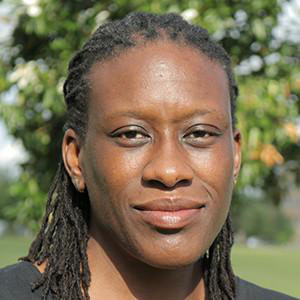
Dr. Karama Neal, Administrator Rural Business Cooperative Service - Keynote Speaker

Anne Gessler, Author and University Professor - Luncheon Speaker

Letitia Nichols Business and Cooperative Program Director for the Delaware-Maryland State Office of USDA Rural Development

Amaha Sellassie Board President Gem City Market

Assata Richards Founding Director of the Sankofa Research Institute
.jpg)
Chelsea Burroughs Public Policy Analyst, National Association for Latino Community Asset Builders (NALCAB)
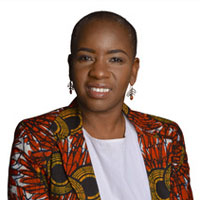
Cherron Perry Thomas, Executive Director We Are DACO

Derek Jones USDA Branch Chief, Public Private Partnerships

Elizabeth Carter Founder & Managing Attorney, Elizabeth L. Carter, LLC

Emily Marie Ramos Rodriguez Board Chair Advocacy Councile of New York Network of Worker Cooperatives

Jeremie Greer Co-Founder and Co-Executive Director Liberation In A Generation

Julian Hill Clinical Teaching Fellow Social Enterprise and Nonprofit Law CeneterGeorgetown University Law Center
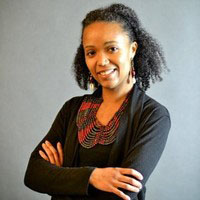
LaKeisha Wolf Executive Director Ujamaa Collective

Meeka Brown, Black, Brown and Green

Omar Freilla Cooperative Development Consultant and Co-founder and Steering Committee Member of Collective Diaspora
.jpg)
Storm Taliaferrow Associate Director of Programs National Association for Latino Community Asset Builders (NALCAB)

Oscar Marroquin, Public Policy Associate National Association Lation Community Asset Builders
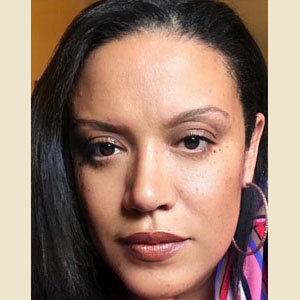
Carmen Huertas, NobleTenured Professor of Law and Senior Associate Dean for Clinical Programs at CUNY Law
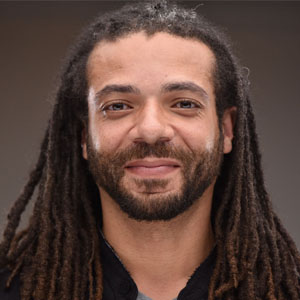
Oneal Latimore

Russell Shoatz III Creator of the multimedia juggernaut Blu magazine
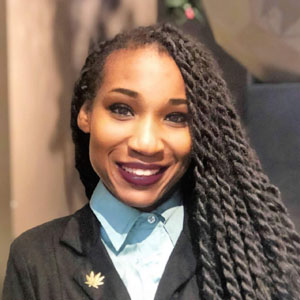
Shekia Scott cannabis equity mentor and consultant

Sacajawea Hall a black feminist, activist, mother, birth-worker, educator and journalist
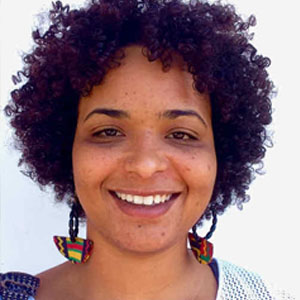
Priscilla Ferreira Ph.D. Assistant Professor in Geography and Latinx and Caribbean Studies
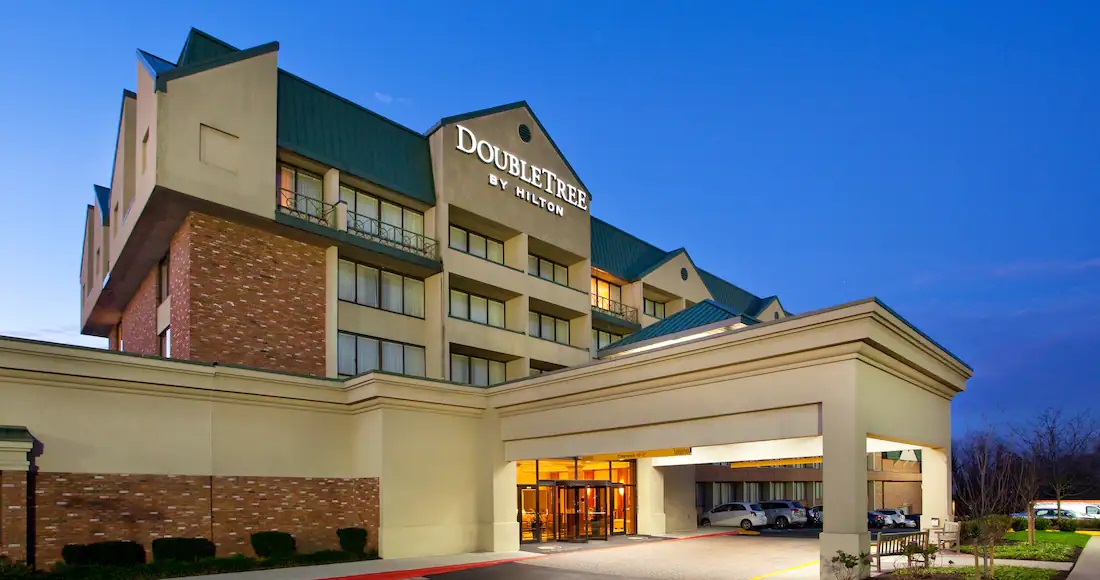
1726 Reisterstown Road Pikesville, Maryland 21208 USA
The health and safety of all visitors to NDCC conferences remains our top priority. We are closely monitoring government mandates and policy changes, Centers for Disease Control and Prevention (CDC) guidelines and public health advancements. As information pertaining to the virus continues to develop, we will adjust our approach as needed and keep you up to date with new developments to ensure a coordinated effort and a safe environment for all NDCC conference attendees.
We will continue to follow CDC and local health department guidelines
We will have hand washing facilities and/or sanitizing systems easily accessible to everyone throughout the event.
Social distancing practices will be implemented according to all venue, local and state guidelines.
To assist in minimizing potential physical contact, elbow bumps are a great alternative to handshakes.
Signage will be placed to remind all attendees to social distance and frequently wash and sanitize their hands.
Conference attendees, exhibitors, vendors, and speakers will be required to participate in a wellness check before they receive their event badge. Everyone will be asked the following questions before they will receive their badge and gain entry into the conference:
In the past 24 hours, have you experienced COVID-19 symptoms? Have you or people whom you have close contact with, like someone who lives in your house, a relative, a friend, or a co-worker tested positive for COVID-19 in the last 14 days or had any COVID-19 symptoms in the last 14 days?
COVID-19 WARNING, ASSUMPTION OF RISK, WAIVER OF RISK AND RELEASE OF LIABILITY AND INDEMNIFICATION FOR ATTENDING 2022 SOCIETY FOR HUMAN RESOURCES (SHRM) CONFERENCES WARNING RELATED TO COVID-19 INFECTION*
The novel coronavirus, COVID-19, has been declared a worldwide pandemic and is very contagious. COVID-19 can cause serious and potentially life-threatening illness and even death. NDCC has taken and will continue to take all reasonable precautions to prevent against the presence and spread of the disease but cannot and does not guarantee against exposure; and therefore, in choosing to attend NDCC Conferences you acknowledge that you are assuming a risk that you may be exposing yourself to COVID-19 and its potential health risks.
I have read and understand the above warning concerning COVID-19. I acknowledge that attending a NDCC Conference is of value to me and that I accept the risk of being exposed to COVID-19 in order to attend. Therefore, I choose to accept the risk of exposure to COVID-19 and I agree that I am personally responsible for my safety and actions while attending NDCC Conferences.
I, for myself, my family, successors, and assigns hereby forever release, waive, discharge, and covenant not to sue NDCC, its board of directors, board members, officers, agents, servants, affiliates, employees, successors, and assigns (collectively the “Released Parties”) from any and all liability, claims, demands, actions, and causes of action whatsoever, directly or indirectly arising out of or related to any loss, damage, or injury, including death, that may be sustained by me related to COVID-19 while participating in any activity associated with NDCC Conferences.
I agree to indemnify, defend, and hold harmless the Released Parties from and against any and all costs, expenses, damages, claims, lawsuits, judgments, losses, and/or liabilities (including attorney fees) arising either directly or indirectly from or related to any and all claims made by or against any of the Released Parties due to bodily injury, death, loss of use, monetary loss, or any other injury from or related to my attendance at NDCC Conferences specifically related to COVID-19.
We are committed to implementing conscious and intentional measures to not only combat COVID-19, but promote healthy best practices that will become the protocol for all events during high- and low-risk time periods alike. Please continuously check back here. We will continue to revise our procedures as needed to reflect the current state of the pandemic.